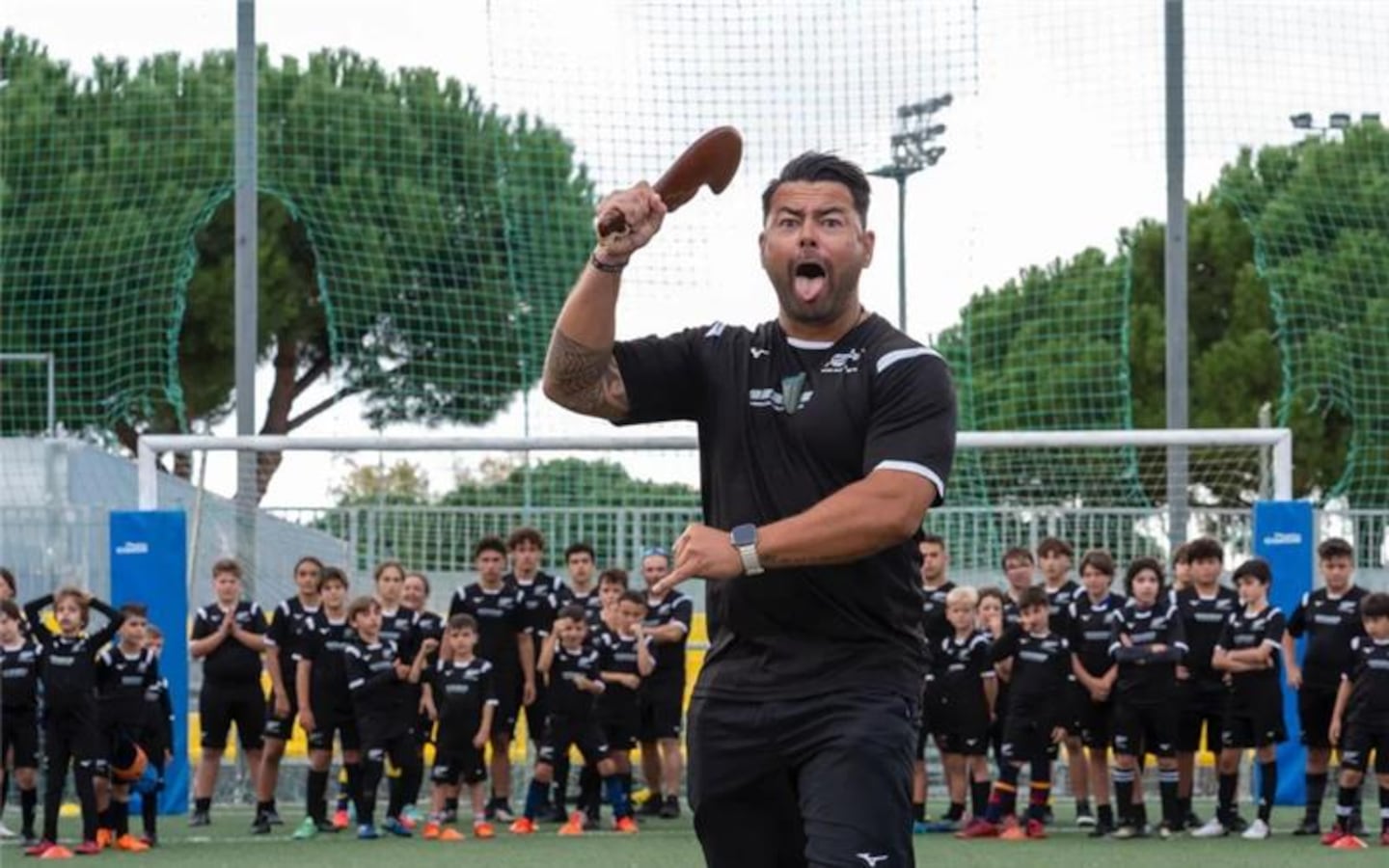This article was first published on RNZ.
Admit it, we’ve all stood in front of the telly to passionately mimic the All Blacks performing “Ka Mate” - and it’s not just Kiwis who do.
From Aotearoa to Ireland to Japan to Mozambique, Troy Nathan has been touring the world for the past 10 years taking haka and rugby to young, aspiring tamariki of all different backgrounds and cultures.
“They want to be future All Blacks regardless of if they’re Kiwi or not,” Nathan said.
“As much as what we’re doing overseas promoting our culture and sharing our kaupapa, it’s also important for our Māori to understand what we’re doing and know how much our culture is appreciated around the world.”
Haka Rugby Global is a programme with over 30 ‘born-and-bred Kiwi’ coaches, balancing rugby with tikanga Māori, for children aged 8-16 years old.
Each camp is kicked off with a pōwhiri, whaikōrero, waiata, and a hongi, and throughout the camp they learn a haka that is specific to the kaupapa.
A poroporoaki (farewell) is led by the children at the very end.
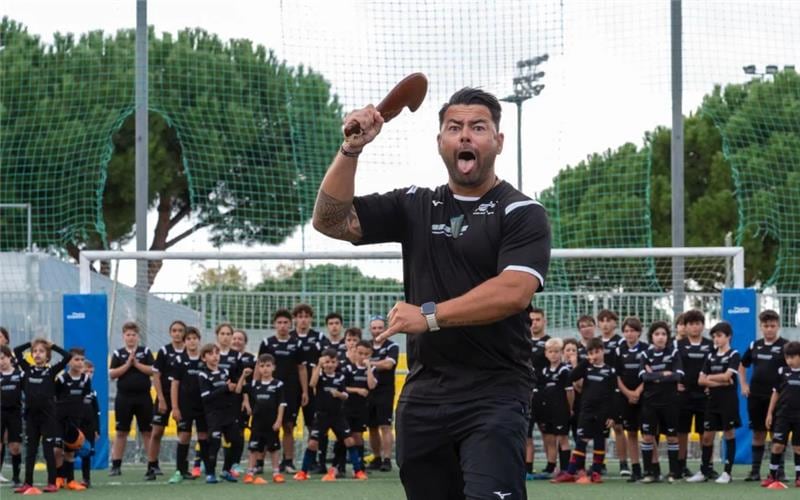
Nathan said it changes the lives of children over the course of just three days, often leaving parents in tears.
The reviews on Facebook show appreciation for a “a unique experience immersed in Māori culture for three days”, one read.
Another review stated their sons hadn’t stopped talking about their experience and practised the haka everywhere they could.
“Yeah it is a rugby camp, but there’s more alignment with Māori culture,” Nathan said.
There have also been kids who have gone through the Haka Rugby Global system and became mentors for the younger generations.
“To educate kids on a deeper level, that’s a massive driving factor for us. But our vision is to utilise multicultural and rugby as a tool to help create future world leaders,” Nathan said.
There are approximately 140 keen kids per camp and each round is funded by parents, it’s the interest that keeps the coaches touring.
This year, Haka Rugby Global will hit its 100th camp with the biggest one yet to happen in London on 8 August with around 160 kids registered, coincidentally two weeks shy of the Women’s Rugby World Cup in England.
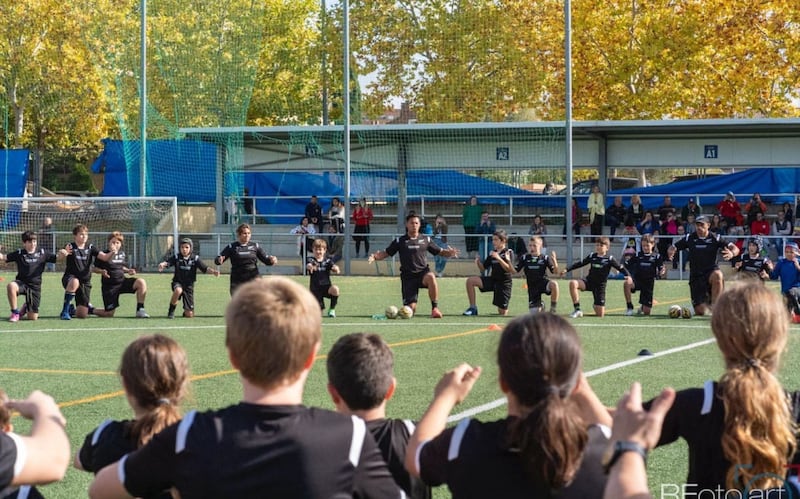
Despite the high number of participants, Nathan said it was “easy” to keep the kids in line.
“It’s down to the multicultural. When we say, ‘hope’ (the action), everyone puts their hand on their hips. Whereas if you blow a whistle and you tell them to shut up, they’re not going to, right?”
“If you tell them to pūkana, everyone will pūkana together - that is the most powerful thing that we do, it’s utilising the multicultural, and that’s what brings in discipline.”
The tamariki have also adopted mana waves and words like “tu meke, mōrena, and ka kite” as well, and coaches are referred to as “uncles”.
Nathan said he does his mahi to show tamariki in Aotearoa that there are professional pathways abroad.
“Everywhere I go I represent who I am and my people. It’s not just for myself, we’re not just representing our family, but we’re representing everyone back home.”
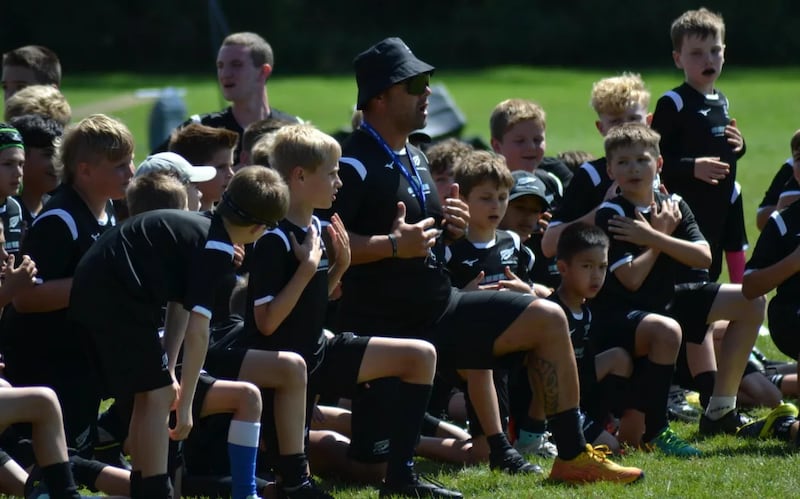
Nathan (Ngāpuhi) grew up in West-Auckland and was an academy rugby player who ventured to professional rugby in Ireland, Italy, and Scotland respectively.
He thought he’d be playing rugby forever.
“I went through a transition period where I thought, well, if I finish rugby, I’ll be in a rut.”
So, he propped up a few businesses and when he hung up his boots, he created Haka Rugby Global.
“I feel, and especially Kiwis as well, we know how to work outside the box. I think that’d be something that we’re brought up with - we know how to go from A to Z and not stumble at C.”
It was a kaupapa he doesn’t want to fizzle out.
“It’s like a dopamine hit. You just want it again and again and again because you’re with the boys the whole time, and you’re having [heaps of] giggles and laughs, it’s easy. It becomes natural, you want it again.”
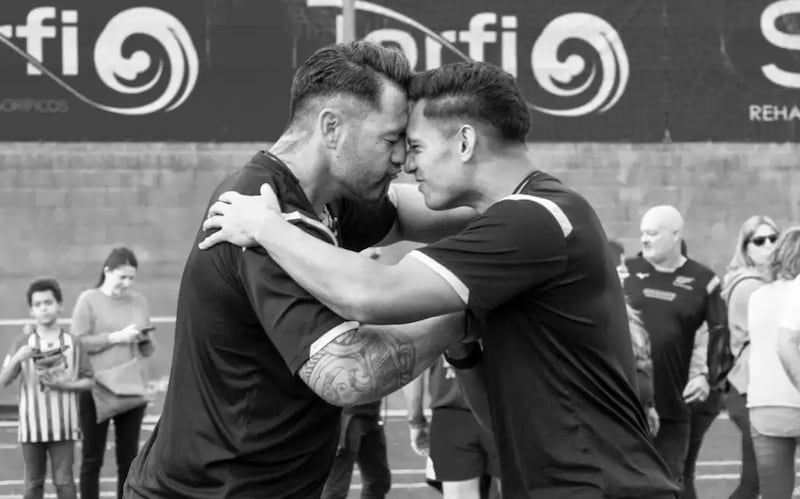
The camp for tamariki is one main driver, but Haka Rugby Global also softens the blow for former professional rugby players transitioning into work, he said.
“That’s a big focus point of ours because we want our people, especially in Europe that have gone out and played rugby, we want them to succeed as well.
“The reason why boys go into a bit of a rut is because they miss the socialism. Like, there’s nothing better than playing rugby and you get to travel to all these countries and go to hotels and just meet different cultures.”
For a lot of the coaches, it was still like being in the professional rugby realm, but they were getting their “wairua fix” through teaching others tikanga Māori, Nathan said.
“If the All Blacks weren’t [one of] the most dominant teams in the world, we wouldn’t be in this situation, but I know deep down that it’s the Māori culture, that’s what it has done.”
- RNZ


